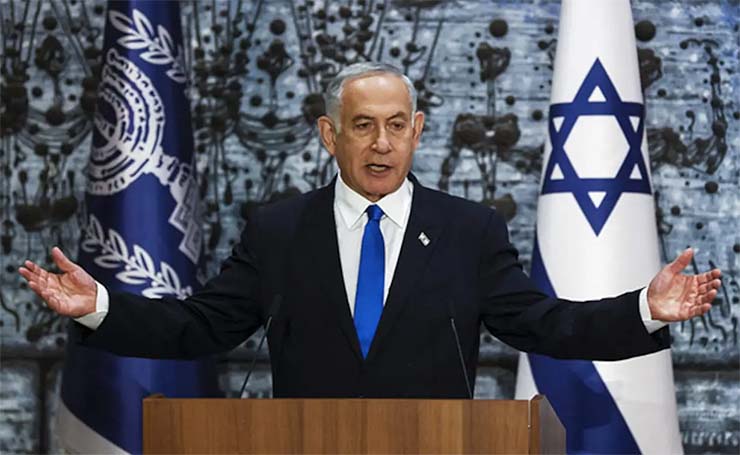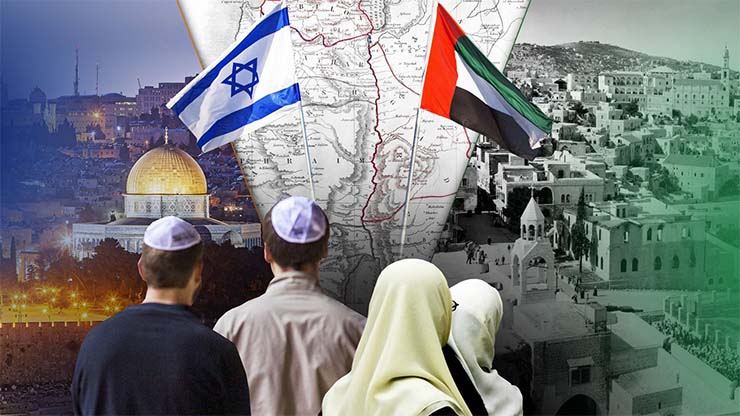
Israeli Prime Minister Benjamin Netanyahu has publicly rejected the US proposition of a Palestinian state, arguing that it would pose a mortal danger to the very existence of Israel. This deadlock over the prospect of an independent Palestinian state with its own capital and people has persisted for the past eighty years and is expected to continue for the foreseeable future.
The biggest question that needs to be addressed is whether there will be any peace. With the Israel-Hamas war in its third month, the fighting has escalated, resulting in more brutality. Gaza is in ruins, nearly 25,000 people are dead, 85% of Gaza lies in shambles, and the health infrastructure is in tatters, leaving the civilian population facing famine-like conditions.
While the world is frantically trying to establish a ceasefire, the stakeholders in the war have rejected any soft line, fearing that it might make them appear weak. However, what needs to be understood is whether the fissures between Palestinians and Jews can ever be mended.
Israelis and Palestinians must draw inspiration from the South African example. Nelson Mandela, the first black president of South Africa, emphasised not on vengeance and retribution but reconciliation, which played a crucial role in mending centuries of racial fissures and hatred in South Africa
Peace – the ultimate casualty
The Israel-Palestine conflict is not new; it has been ongoing since the middle of the 20th century when the Balfour Declaration was formally made by Britain in 1916. With the formation of Israel in 1948, the cycle of violence has only intensified in the ensuing decades. Its latest egregious manifestation is the ongoing war.
In all these conflicts, peace becomes the ultimate casualty. Prime Minister Narendra Modi, in his remarks at the 2022 Indonesian G20 summit, stated that “this is not an era of war.” However, war seems to be the order of the day in the Middle East. But is it too much to ask for peace? Immanuel Kant argued in his “perpetual peace” theory that with the expansion of modernisation and democratisation, war would become a thing of the past. However, peace in this context seems to be a luxury.
With allegations of genocide against Israel being levelled by South Africa, there is no doubt that putting an end to the vicious cycle of violence in Palestine will be an exceedingly difficult task.

The path forward
There can be no peace in the Middle East without a permanent, acceptable, and inclusive solution to the Palestinian question. In this context, it is necessary to find a sustainable path forward. Israelis and Palestinians must draw inspiration from the South African example. Nelson Mandela, the first black president of South Africa, emphasised not on vengeance and retribution but reconciliation. This manifested itself in the establishment of a Truth & Reconciliation Commission, which played a crucial role in mending centuries of racial fissures and hatred in South Africa.
Another potential solution is emulating the example of Mahatma Gandhi. Bapu taught the world to walk on the path of ahimsa or non-violence. He urged the world to follow the path of Satyagraha, finding the truth without harbouring any hatred or contempt for your enemy. Today, Mahatma Gandhi is revered the world over as a paragon of peace. It is imperative that Israelis and Palestinians embrace non-violence to put an end to this vicious cycle of violence that has consumed generations in the past and will continue to do so unless urgent ameliorative steps are taken.
Today, Mahatma Gandhi is revered the world over as a paragon of peace. It is imperative that Israelis and Palestinians embrace non-violence to put an end to this vicious cycle of violence that has consumed generations in the past and will continue to do so unless urgent ameliorative steps are taken
In this context, India must take a proactive role. PM Modi’s strong support to Israel in the initial stages of the conflict did unnerve many of India’s Middle Eastern Islamic allies. However, India has made it clear that it remains committed to the two-state solution. As Israel has publicly rejected the two-state solution as utopian and wishful thinking, it is imperative that India, as an emerging messenger of peace, undertake proactive diplomacy to immediately put an end to this conflict, which is eating into the moral vitals of humanity.
The president of the Palestinian Authority, Mahmoud Abbas, is said to have remarked that only India can make a permanent resolution of the Israel-Palestine conflict. Hence, there is no doubt that while Israelis and Palestinians eschew the path of violence and embrace the path of ahimsa and reconciliation, India must play an active role in bringing peace.
Only with a peaceful and stable Middle East can India hope to realise its vision of being a moralpolitik great power.
References
https://www.bbc.com/news/world-middle-east-68025945
https://www.justice.gov.za/trc/
–The writer is currently working as a Research Associate at Defence Research and Studies (dras.in) and is a columnist. The views expressed are personal and do not necessarily reflect the views of Raksha Anirveda















